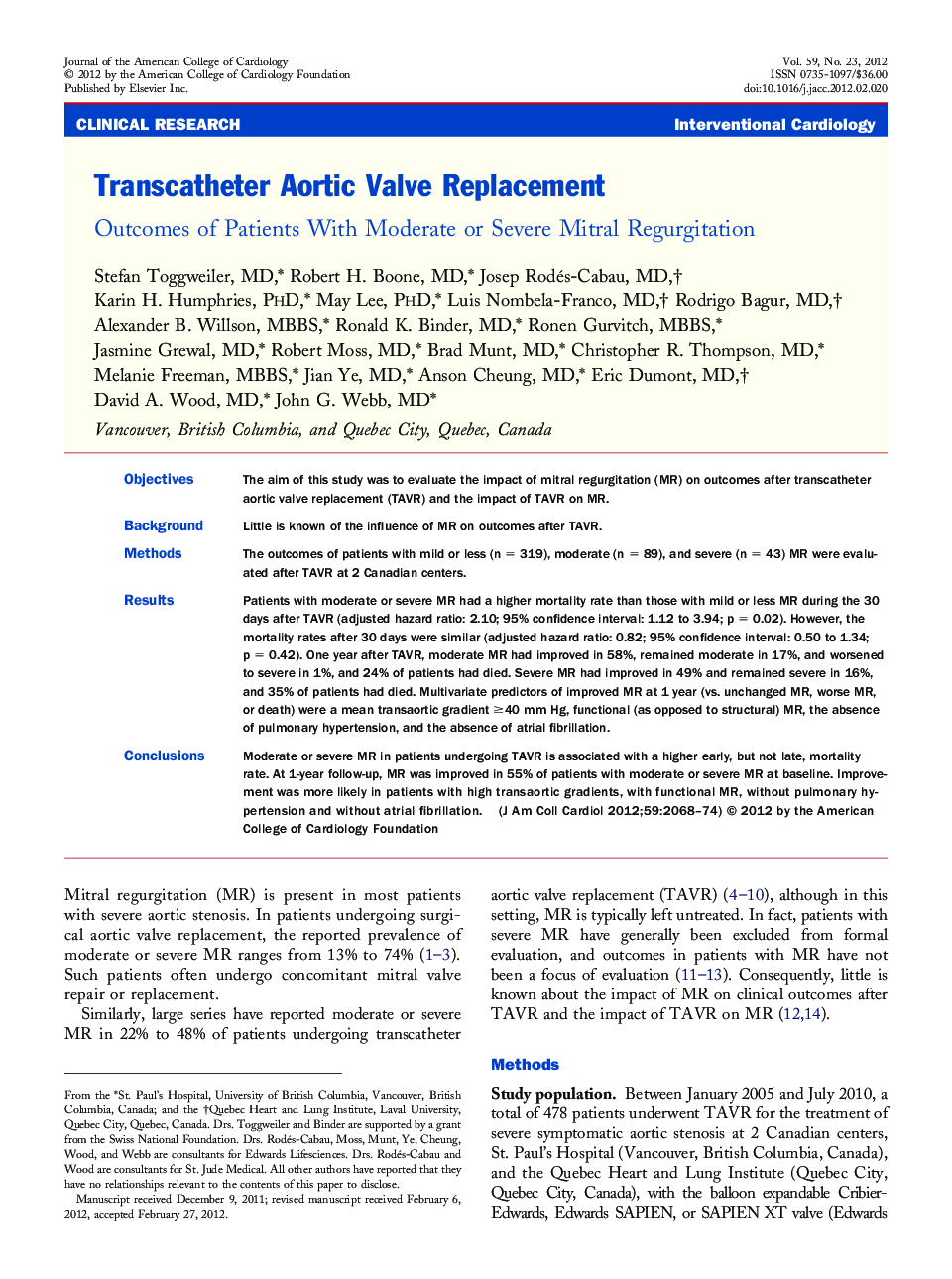| Article ID | Journal | Published Year | Pages | File Type |
|---|---|---|---|---|
| 2946706 | Journal of the American College of Cardiology | 2012 | 7 Pages |
ObjectivesThe aim of this study was to evaluate the impact of mitral regurgitation (MR) on outcomes after transcatheter aortic valve replacement (TAVR) and the impact of TAVR on MR.BackgroundLittle is known of the influence of MR on outcomes after TAVR.MethodsThe outcomes of patients with mild or less (n = 319), moderate (n = 89), and severe (n = 43) MR were evaluated after TAVR at 2 Canadian centers.ResultsPatients with moderate or severe MR had a higher mortality rate than those with mild or less MR during the 30 days after TAVR (adjusted hazard ratio: 2.10; 95% confidence interval: 1.12 to 3.94; p = 0.02). However, the mortality rates after 30 days were similar (adjusted hazard ratio: 0.82; 95% confidence interval: 0.50 to 1.34; p = 0.42). One year after TAVR, moderate MR had improved in 58%, remained moderate in 17%, and worsened to severe in 1%, and 24% of patients had died. Severe MR had improved in 49% and remained severe in 16%, and 35% of patients had died. Multivariate predictors of improved MR at 1 year (vs. unchanged MR, worse MR, or death) were a mean transaortic gradient ≥40 mm Hg, functional (as opposed to structural) MR, the absence of pulmonary hypertension, and the absence of atrial fibrillation.ConclusionsModerate or severe MR in patients undergoing TAVR is associated with a higher early, but not late, mortality rate. At 1-year follow-up, MR was improved in 55% of patients with moderate or severe MR at baseline. Improvement was more likely in patients with high transaortic gradients, with functional MR, without pulmonary hypertension and without atrial fibrillation.
